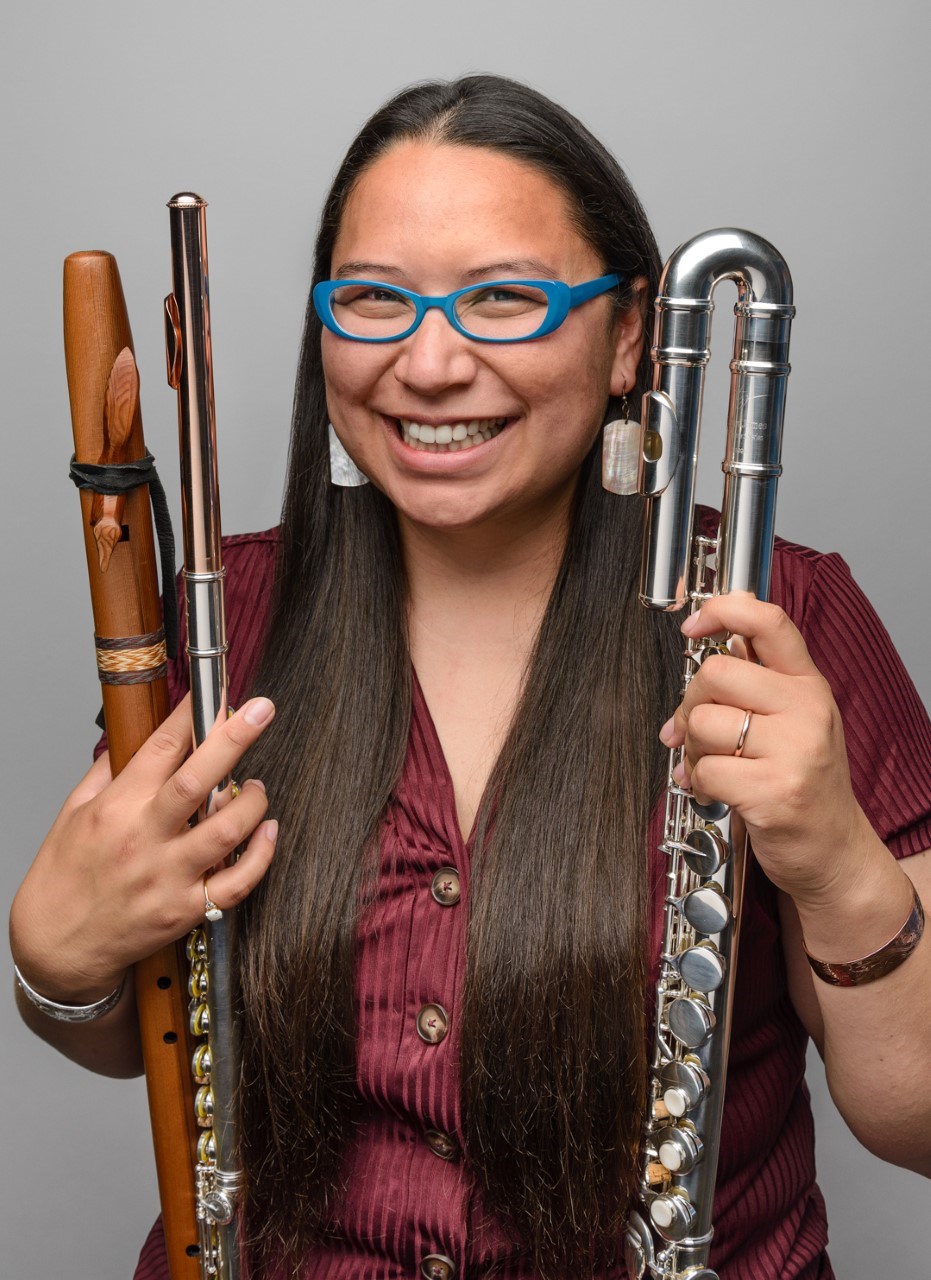COCHRANE— Blending the styles of classical and Indigenous traditional, Cree musician and Cochranite Jessica McMann has just released her debut album Incandescent Tales.
Hailing from the Cowesses First Nation in Saskatchewan, Jessica McMann teamed up with fellow Indigenous musicians Beverly McKiver on piano, special guest Karen Shepherd and producer Laura Vinson to produce the album.
McMann has been playing music since she was very young.
Her parents signed her up for piano lessons in grade school, and she continued her musical education into junior high in her school’s band program.
After high school, she started a music degree at the University of Calgary in 2005, and then transferred to the Jazz Studies program at the University of Manitoba before returning to Calgary to finisher her degree at home after a 10-year break.
While attending the University of Manitoba she said she had difficulties in her program with discrimination and racism from the faculty and other students.
Although she tried to persevere, when a professor told her she should drop out of the program, she did.
“It wasn’t the easiest time for an Indigenous musician in post-secondary in the classical music program and the Jazz program. When I left U of M I had a professor tell me I should drop out and so I did,” she said. “I think that’s what did me in. I had a supportive Native Studies professor. She was really supportive, but it wasn’t enough to keep me there … I didn’t pick up my flute for a long time after that.”
When she returned to the program at the University of Calgary, she had a reinvigorated sense of purpose.
“Because I was returning to a music program that I previously exited 10 years before, I was very focused and I managed to finish in one year,” she said. “It was an alright experience. It wasn’t the best again, but I had a goal of completing my music degree and I had a goal of completing my music degree so I think that helped a little bit.”
She added in her 10-year hiatus from school she let music fall to the wayside while she focused on learning Indigenous contemporary dance and that area of the performing arts.
However, she found the two art forms complimented each other.
“There is a different connection to music as a dancer when I’m choreographing work and I find that my music is stronger as I work in a song’s physical sense and connect to music on a different level,” she said.
McMann said she was driven to finish university because she realized if she did not complete her degree within a two-year period she would have to start from scratch.
She was motivated to create an album to prove the people wrong who told her she did not have a future in the music industry.
“I was always told I could never do it,” she said. “It [the album] gave me a new direction outside of academia, and the expectations of music school.”
McMann said she has found a very encouraging community of professionals who surround and support her at this point in her career.
The team of talent that McMann surrounded herself with to produce Incandescent Tales are all Indigenous, which was very important to her, she said.
“I don’t see us really playing traditional classical music,” she said. “It’s a very small community, and I didn’t want to work with non-Indigenous people on something that I thought we have a voice in as well. We’re all classically trained, and we all love classical music as well as contemporary and all other styles, but it was very important to me.”
McMann said her album is hard to define, as involves an assortment of styles blended together.
“It’s an eclectic collection of instrumental music. It falls under so many categories. If I were to say it is an indigenous-classical album is absolutely correct. There is Indigenous chamber music composed and all played by Indigenous people. I would say that it fits more in the classical tradition and instrumental than it does in jazz or folk or anywhere else.”
McMann said she draws inspiration for her music from her experiences, other music, her surroundings and the history of her First Nations people.
She explained that she has been inspired by current events like the reintroduction of bison to Banff National Park and to the plains, the migratory history of First Nations people in the Cypress Hills and what that area meant to the people who inhabited the area and chamber music
“There’s just music that you listen to and you just love and you have to play,” she said. “I have a love for chamber music from the baroque era which has a lot of music written— There were a lot of kings that loved chamber music so there was a lot of music written for them.”
McMann said she is still creating music and has some projects on the horizon, including a collection of music called Stories of my People.




